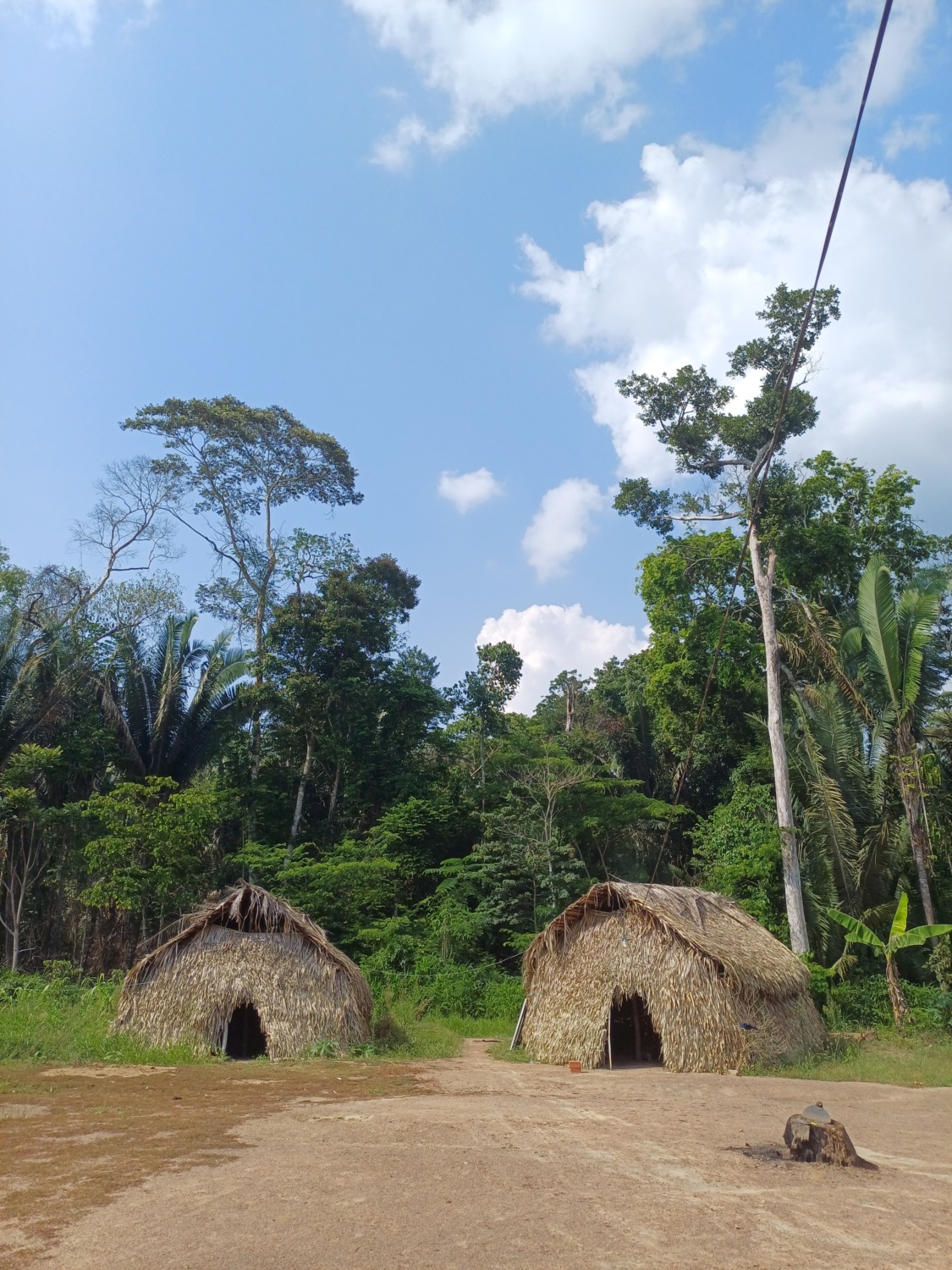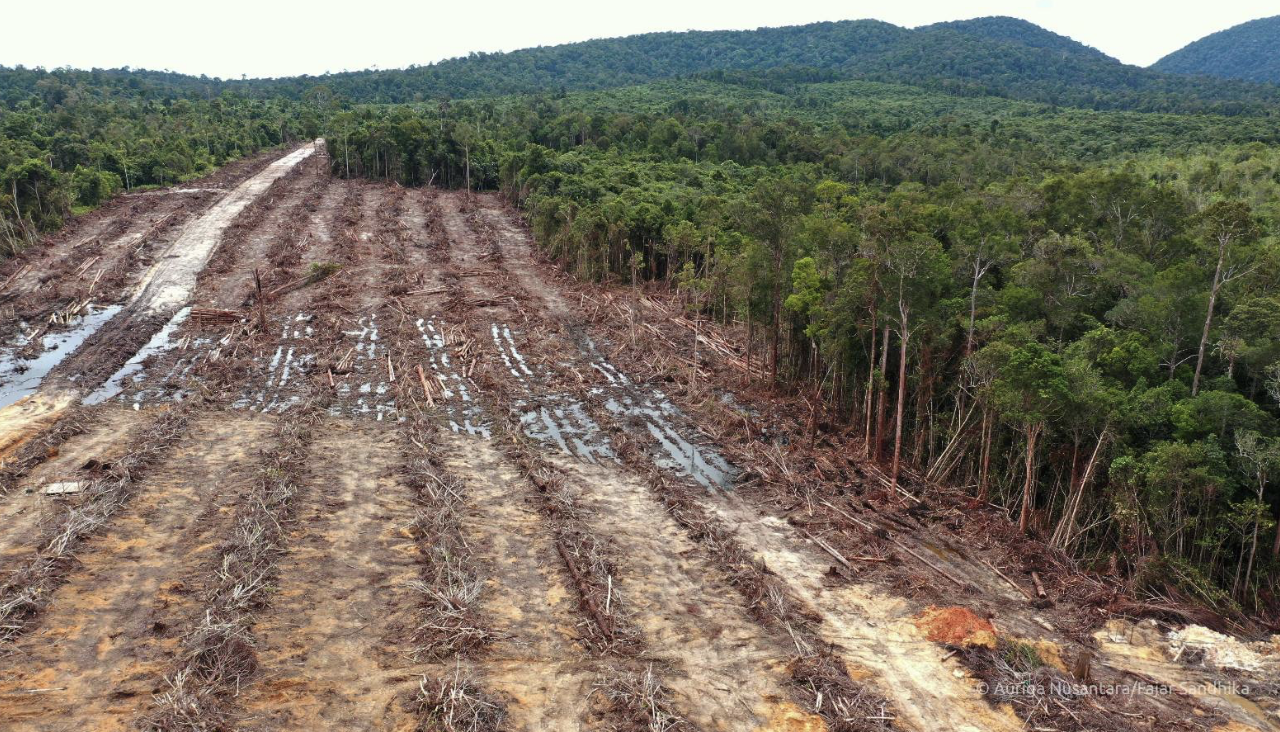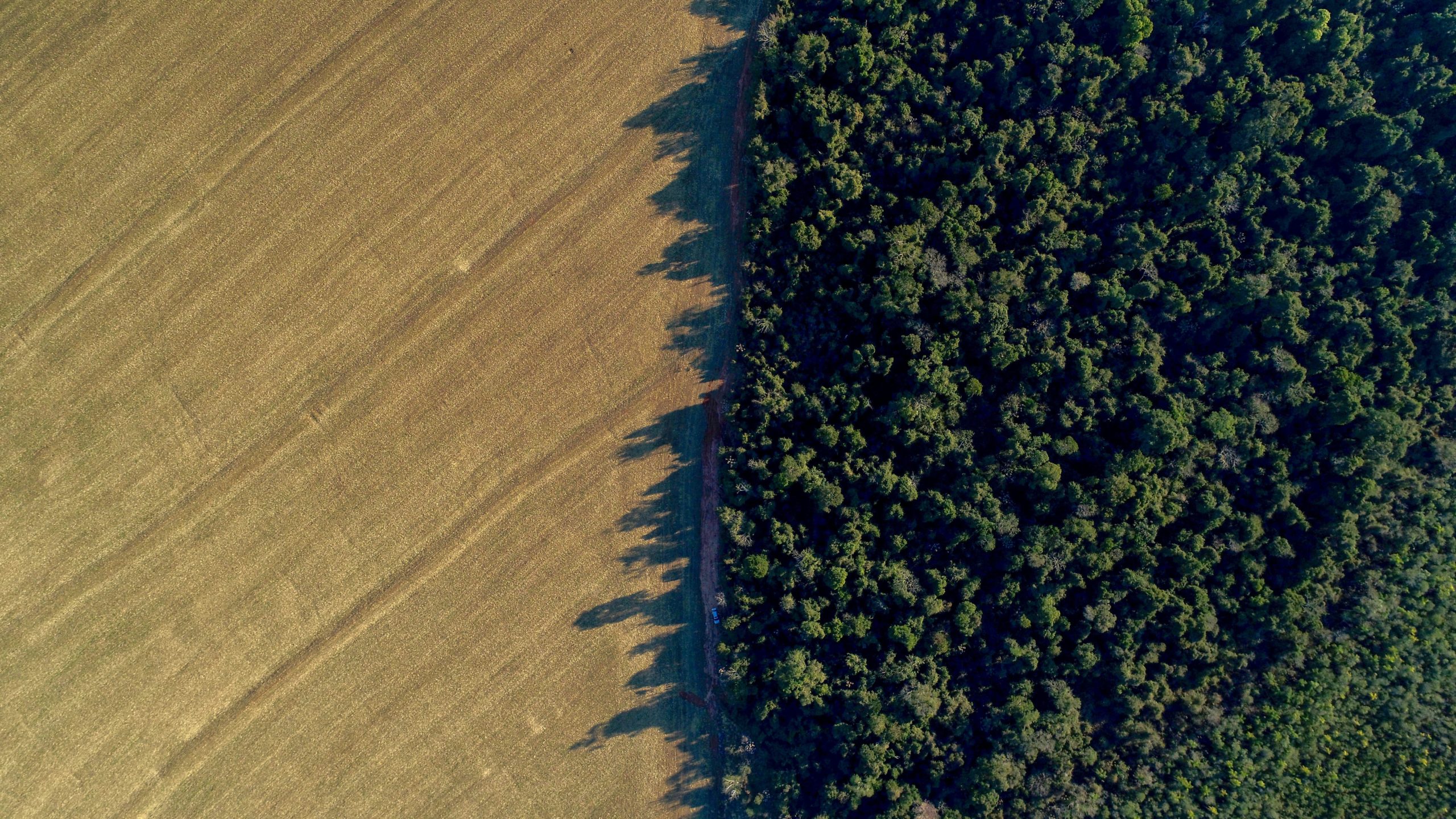
NYSE warned of violating US anti-money laundering laws if it lists JBS shares
Press Release: Brazilian Indigenous leader fears his people won’t survive “constant war” with meat industry
Legal Notice: Submitted by Mighty Earth to the New York Stock Exchange Board
Full Report (English)
Full Report (Portuguese)
- In a new legal Notice letter to the NYSE board Mighty Earth urges the world’s biggest stock exchange to decline the listing on the grounds that JBS is profiting from the proceeds of crime.
- By continuing to purchase cattle that are raised on illegally deforested land in Brazil, the letter alleges JBS’s profits are the proceeds of criminal conduct.
- The Notice warns that if the NYSE lists JBS shares on its exchange this week, it would be facilitating the distribution, use or control of the proceeds of crime to shareholders.
- The warning comes as Mighty Earth publishes new analysis, referenced in the Notice to the NYSE, detailing continued illegal deforestation in JBS’s beef supply chains in Brazil, linked to escalating violence and land-grabbing in Indigenous Territories.
In a new legal Notice, Mighty Earth has warned the board of the New York Stock Exchange (NYSE), that it risks knowingly violating US Anti-Money Laundering (AML) laws if it allows Brazilian meat giant JBS to list its shares on the NYSE. Given the long history of criminal activity in JBS’s supply chain, any listing would “facilitate the acquisition, distribution, conversion, use or control of the proceeds of crime to shareholders, namely profits derived from cattle grazed on illegally deforested land.” The Notice catalogues extensive evidence of JBS benefitting from persistent criminal conduct within its beef supply chains in Brazil, namely illegal deforestation.
US Lacey Act
The Lacey Act in the US targets not only the final act of export, but every alleged illegal act in the supply chain, including on the ground in the producing country, in this case Brazil. The Act determines that it is a federal offense to import to the US or trade goods derived from wildlife or plant-related activity that violates a foreign law protecting natural resources, such as Brazilian environmental laws relating to illegal deforestation. If it is found that JBS derives revenue from illegally deforested land and that deforestation is criminal under foreign law this risks criminal conduct under the Lacey Act and the AML legal framework.
According to new analysis by the Environmental Investigation Agency U.S from May 2024 – April 2025, JBS S.A shipped beef products from Brazil to the United States worth roughly $767 million, highlighting the possible connection between the benefit from criminal conduct and the US jurisdiction.
JBS admission of illegal risk
In its F-4 filing to the US Securities and Exchange Commission (SEC) on 11 April 2025, JBS acknowledged that “there can be no assurance that available monitoring procedures can ensure that the origin of any head of cattle was in full compliance with applicable laws, regulations or our Responsible Procurement Policy (RPP.)” This highlights that JBS knows, or at least suspects, that its products are tainted by criminality. In January of this year, JBS’s Global Chief Sustainability Officer Jason Weller admitted that JBS had “zero operational, contractual or legal control of its supply chain.”
Alex Wijeratna, Senior Director at Mighty Earth, said:
“JBS profits from criminal conduct, by purchasing cattle which begin their lives on illegally deforested land in Brazil before being laundered through “clean” farms in its direct supply chains. Astonishingly, JBS has admitted that it has no control over its supply chain in Brazil. If the New York Stock Exchange turns a blind eye to this and allows JBS to list its shares, it would be seen as explicit approval of using public markets to launder criminal proceeds and will violate US anti-money laundering laws. Even at the eleventh hour, on the eve of the first day of trading JBS shares, the NYSE must do the right thing and decline the JBS listing in New York.”
Kevin Galbraith, US Securities Lawyer for Mighty Earth, said:
“Mighty Earth, other NGOs and investigative journalists, have all demonstrated that at least some of JBS’s beef is derived from illegal deforestation of the Amazon and other protected regions in Brazil. The company has admitted as much. Under U.S. law, it may not now ‘launder’ the proceeds of its unlawful conduct by selling its shares on the New York Stock Exchange. We have now raised this problem with the NYSE so that it may avoid becoming entangled in JBS’s web of money laundering.”
New Mighty Earth analysis
The warning comes as new analysis by Mighty Earth reveals continuing illegal deforestation in JBS’s Brazilian beef supply chains, with one Indigenous leader fearing his people won’t survive the “constant war” with the meat industry.
In its new Rapid Response report, which is referenced in the Notice to the NYSE, Mighty Earth reveals escalating violence, deforestation and land-grabbing for cattle ranching in the Uru-Eu-Wau-Wau (UEWW) Territory in Rondônia in the Amazon, threatening the future of a community worn down by a relentless battle for survival.
The study found 44 hectares of recent clearance, 40 hectares of which were inside the Legal Reserve (between April to October 2024) and 58 fire alerts on two farms bordering the Indigenous Territory, with a blaze spreading into UEWW land in September of last year. Many of the cattle ranches identified in the report were part of Brazilian beef giant JBS’s beef supply chain. It comes as new figures reveal deforestation in the Amazon surged 92% in May of this year compared to the same month in 2024.
Bitaté Uru-Eu-Wau-Wau, President of the Uru-Eu-Wau-Wau Indigenous Association, said:
“In the past five years, due to the pressures of invasions, our population has decreased. There have been premature deaths, including for our people who were defending the Territory.”
“We live in a constant war, and few of us want to have children during a war over territorial disputes. We are witnessing the invaders increasingly appropriating our territory, killing the animals, and then we think: How will our children grow up with this great fear of being attacked?”
João Gonçalves, Global Protein Transition lead at Mighty Earth, said:
“Indigenous Peoples are the guardians of the forest and biodiversity in the Amazon, but they are being attacked and worn down by very powerful forces, which are hellbent on expanding the destructive practices of the meat industry, devouring more and more land for cattle ranching, much of which is illegal, and imperiling Indigenous lives.”
Report Key findings
- JBS, Marfrig and Minerva beef slaughterhouses in Brazil were linked to 851,121 hectares of deforestation and nature conversion – equivalent to more than one million football pitches – in the Amazon and the Cerrado between 2009 and 2024.
- More than half (54%) of this deforestation originates from potential indirect cattle suppliers. Brazilian beef giant JBS accounts for 83% of the total impacted land the analysis detected through monitoring.
- 3,966 hectares of recent clearance was found on the five case study farms highlighted in the report, equaling 3 million tonnes of CO2.
- 1,409 beef products found in supermarkets across Brazil were scanned by researchers using the ‘Do Pasto ao Prato’ (dPaP) mobile app, between February and December 2024. Data from the scanned beef samples showed they came from 174 slaughterhouses, including 39 in the Legal Amazon.
- The beef products were found in 100 stores belonging to the 4 largest retailers (Carrefour, Grupo Mateus, Assaí/Sendas, and GPA/Casino) in 44 cities in19 Brazilian states.
- More than half (378 out 687) of the beef products scanned on Carrefour’s shelves in Brazil were linked to JBS.
- Across the four retailers, 676 (51%) beef products were linked to 52 JBS slaughterhouses.
- Combining this data with a sample of Animal Transportation Documentation (Guia de Trânsito Animal, GTA) from 7 states in Brazil, the analysis identified 6,259 direct and 7,312 indirect cattle suppliers with records of deforestation linked to 38 slaughterhouses, 26 of which are owned by JBS.
ends
Notes to Editor:
The Rapid Response Program
Mighty Earth, in partnership with AidEnvironment, and using data collected through the Do Pasto ao Prato app, has released its #5 report as part of the Rapid Response program, which tracks recent deforestation in Brazil’s cattle and soy supply chains; it benefits from additional investigations by Repórter Brasil and on-the-ground investigations. The program aims to proactively halt deforestation in its early stages by urging companies to drop slaughterhouses and cease trading with suppliers involved in recent, visually confirmed fires or land clearing. By rapidly ending business with actors contributing to deforestation, further environmental destruction can be avoided, preventing hundreds of hectares of deforestation from becoming thousands.
The reports are published quarterly and push national and international meatpackers, traders and retailers operating in Brazil to act by sending a rapid response to stop deforestation and conversion. The program also alerts international retailers, public prosecutors, feed manufacturers, financial institutions, and other key players about the risks of deforestation in Brazil’s beef and soy supply chains, encouraging them to take urgent action.
Previous Rapid Response reports can be accessed via the Soy & Cattle Deforestation Monitor website.
About Mighty Earth
Mighty Earth is a global advocacy organization working to defend a living planet. Our goal is to protect half of Earth for Nature and secure a climate that allows life to flourish. We are obsessed with impact and aspire to be the most effective environmental advocacy organization in the world. Our team has achieved transformative change by persuading leading industries to dramatically reduce deforestation and climate pollution throughout their global supply chains in palm oil, rubber, and cocoa, while improving livelihoods for Indigenous and local communities across the tropics.


